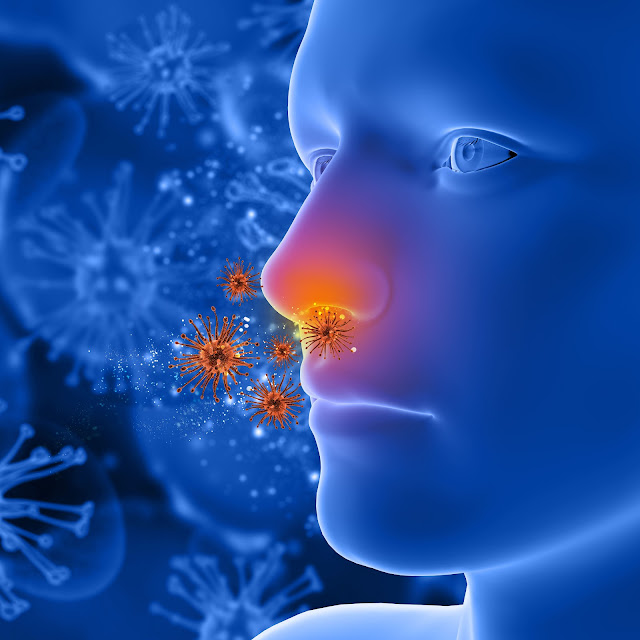Abscess Tooth Symptoms: Causes, Diagnosis, and Treatment
Abscess Tooth Symptoms: Recognizing the Warning Signs of a Dental Abscess
 |
Image by stockking on Freepik |
Introduction:
Dealing with dental issues can be an agonizing experience, especially when faced with an abscessed tooth. An abscess forms when a pocket of pus develops in the tooth or gums due to a bacterial infection. Without prompt attention, an abscessed tooth can lead to severe pain and potential complications. In this article, we will explore the symptoms associated with an abscessed tooth, enabling you to identify the warning signs early on and seek appropriate dental care.
1. Understanding Dental Abscesses
A dental abscess is a painful condition that occurs when bacteria infiltrate the soft tissues surrounding a tooth. These bacteria can penetrate the tooth through cavities, cracks, or other areas of damage. As the infection progresses, an accumulation of pus forms, leading to swelling and inflammation. Dental abscesses can be categorized into three main types: periapical abscesses, periodontal abscesses, and gingival abscesses. While each type has its distinct characteristics, there are several common abscess tooth symptoms that may indicate the presence of an abscess.
2. Abscess Tooth Symptoms
Experiencing an abscessed tooth can cause a range of distressing symptoms. Recognizing these warning signs is crucial for prompt diagnosis and treatment. The following are some of the most common abscess tooth symptoms:
Severe Toothache: A persistent and throbbing toothache is one of the primary indicators of an abscessed tooth. The pain may be intense and worsen when biting or applying pressure to the affected tooth.
Temperature Sensitivity: Individuals with an abscessed tooth often experience heightened sensitivity to hot or cold foods and beverages. This sensitivity may persist even after the stimulus is removed.
Swelling and Redness: Inflammation and swelling around the affected tooth or gums are typical signs of a dental abscess. The area may appear red and tender to the touch.
Painful Chewing: As the infection progresses, chewing or biting down on food can become excruciating. This discomfort may be localized to a specific tooth or radiate to the surrounding area.
Foul Taste and Smell: An abscessed tooth can cause a persistent unpleasant taste in the mouth. Additionally, a foul odor may emanate from the infected tooth or the pus-filled pocket.
Gum Boil Formation: In some cases, a small bump or pimple-like swelling called a gum boil may develop on the gums near the affected tooth. This boil may release pus when pressure is applied.
General Discomfort: Individuals with a dental abscess may experience overall malaise, including headaches, fever, and swollen lymph nodes.
Difficulty Opening Mouth: Advanced cases of dental abscesses can lead to difficulty in fully opening the mouth. This restriction may be due to pain, swelling, or jaw stiffness.
It's important to note that these symptoms may vary in severity and presentation from person to person. If you suspect you have an abscessed tooth, it is vital to consult a dentist for a proper diagnosis and appropriate treatment.
3. Frequently Asked Questions about Abscess Tooth Symptoms
Here are some frequently asked questions about abscess tooth symptoms:
Q1: Can an abscessed tooth cause severe pain?
A1: Yes, an abscessed tooth can cause intense and severe pain. The infection and inflammation associated with a dental abscess can irritate the nerves in the tooth, leading to persistent and throbbing pain.
Q2: Are abscess tooth symptoms limited to the affected tooth?
A2: Abscess tooth symptoms can extend beyond the affected tooth. The pain and swelling may radiate to the surrounding gums, jaw, and even the face. It's important to pay attention to any localized discomfort as well as any associated symptoms in adjacent areas.
Q3: What should I do if I suspect I have an abscessed tooth?
A3: If you suspect you have an abscessed tooth, it's essential to seek dental care as soon as possible. Contact your dentist and describe your symptoms in detail. They will evaluate your condition, possibly through a physical examination and dental imaging, and recommend appropriate treatment.
Q4: Can an abscessed tooth cause a fever?
A4: Yes, in some cases, an abscessed tooth can lead to a low-grade fever. The body's immune response to the infection may result in an elevated body temperature. If you experience a persistent fever along with other abscess tooth symptoms, it's important to consult a healthcare professional.
Q5: How are abscessed teeth treated?
A5: The treatment for an abscessed tooth typically involves draining the pus and eliminating the infection. This can be achieved through various procedures, such as root canal therapy, incision and drainage, or tooth extraction. Antibiotics may also be prescribed to control the infection. The specific treatment approach will depend on the severity of the abscess and the dentist's recommendation.
Q6: Can an abscessed tooth heal on its own?
A6: An abscessed tooth is unlikely to heal on its own. Without appropriate treatment, the infection can spread and lead to more significant oral health issues. It's crucial to seek professional dental care to prevent complications and alleviate symptoms.
Conclusion
Recognizing the symptoms of an abscessed tooth is essential for timely intervention and treatment. If you experience severe toothache, temperature sensitivity, swelling, or other related symptoms, it's crucial to consult a dentist. Prompt diagnosis and appropriate treatment can help alleviate pain, control the infection, and preserve your oral health. Don't ignore the warning signs—seek professional dental care to address abscess tooth symptoms effectively.

.jpg)